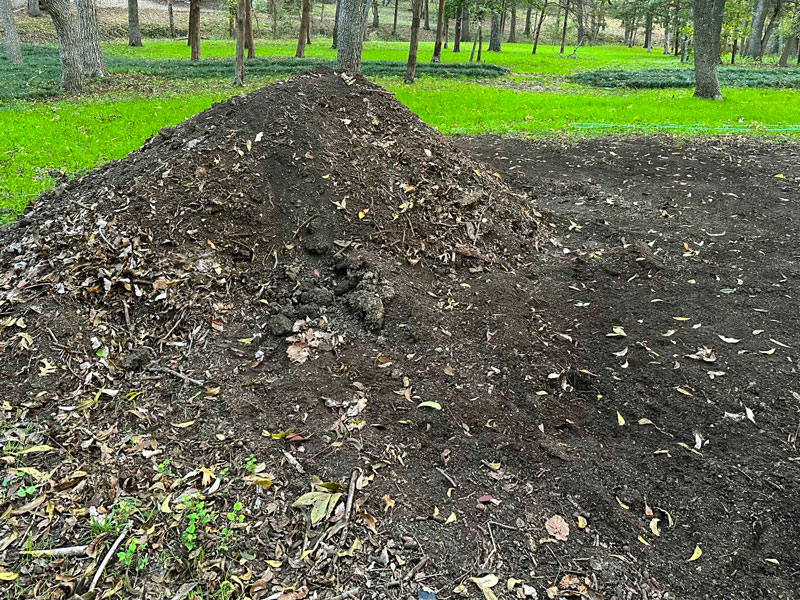Thin-layer Composting
Don’t let anyone tell you that oak and pecan compost is bad for your garden. I’m living proof to the contrary. I’ll explain.
We have lived in rural Collin County for 47 years. Our property was part of a small farm when we bought 11 acres split by a dry creek bed. That creek originates on one end of our property during rainstorms and empties at the other almost directly into the East Fork of the Trinity River.
Pecan and red oak trees that were 30 ft. tall when we built our home now tower to 65 ft. and cast shade over probably 90 percent of our property.

I’ve landscaped about one acre, and the fallen leaves from just that one acre add up to a large amount of organic matter. We blow them off our drive and we bag them out of our yard (what little turf is left in all that shade). We mulch them and pile them.
However, rather than building an enclosed compost bin due to the volume, I found a place that’s out of sight but still easily accessible. It has a shallow wash area within it, and that’s where we’ve put all the organic matter. Layer upon layer. For 8 or 9 years now we’ve added more leaves each autumn. The pile was 16 or 18 inches deep, and I could tell it was ready to use.
I hired a man with a front-end loader to pile it into one space, turning it as he did, and that’s what you see in my photo. We’ll keep the pile moist over the winter, and by spring it will be ready to work into several new gardens and beds. I’ll use 1 in. of this compost in tandem with 1 in. each of sphagnum peat moss, well-rotted manure, finely ground pine bark mulch, and expanded shale to loosen my tight clay soil. I’ll rototill again to blend all this organic matter into the top foot of soil.
If your city doesn’t have a grass clipping recycling facility, or you if you live out in a rural area as we do, put the yard waste to work. Compost is too valuable to waste. Put it to work in your gardens starting today.
Note to address allelopathy – the effect one plant has to slow the growth of another, in this case the retardation of growth caused by tannic acids coming from pecan and oak leaves, etc.: By the time this compost is ready to use, any of these oils will long ago have drained out of the plant tissues. No cause for concern.
